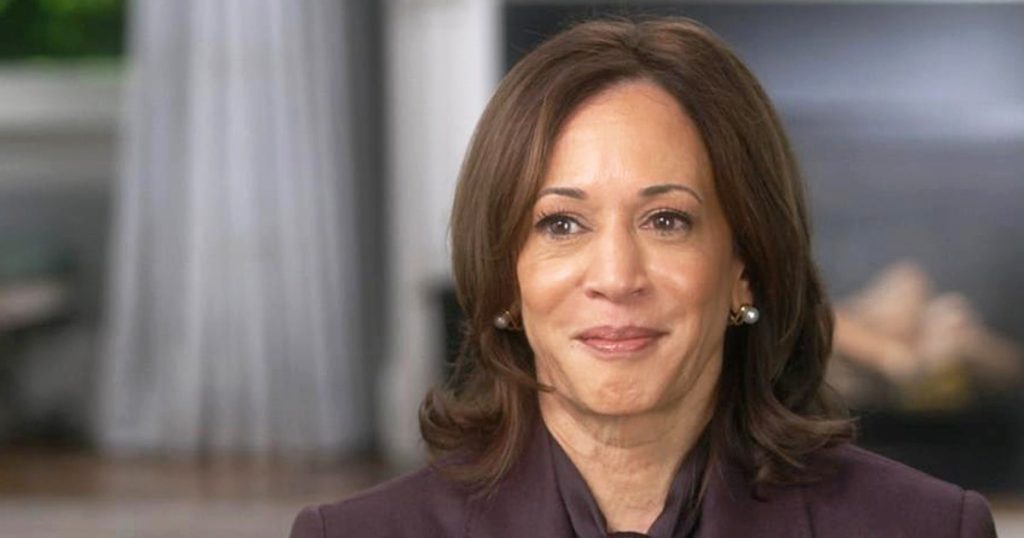Vice President Kamala Harris faced tough questions in a CBS News’ “60 Minutes” interview, particularly about the Biden administration’s border policies and the historic surge of immigrants crossing the border. Harris defended the administration’s efforts to address the issue and emphasized the need for comprehensive immigration reform from Congress. She also pointed out recent changes that have reduced illegal immigration by half, but reiterated the need for legislative action. The interview with Harris and Minnesota Gov. Tim Walz came as the election approached, with the Harris campaign launching a media “blitz” to increase visibility.
The “60 Minutes” interview was originally intended to feature both presidential candidates, but Donald Trump backed out, leaving Harris to field questions about Ukraine, funding campaign promises, and her evolving positions. Harris defended her tax policies, suggesting that the wealthiest individuals should pay their fair share. She expressed confidence in her ability to garner support and build consensus in Congress. The interview also touched on Harris’ ownership of a Glock and her stance on gun ownership, as well as her criticism of Trump for avoiding an interview and instead focusing on personal grievances in his rallies.
Harris’ responses during the interview were scrutinized, with critics noting her deflections and sidestepping of questions. Some Democrats have expressed concern that the cautious approach to traditional media interviews by Harris and Walz could negatively impact their campaign efforts. The interview also shed light on the absence of Trump, who chose not to participate in the program, leading to further speculation and discussion surrounding his decision and its implications.
Despite the challenges and criticism, Harris remained steadfast in her commitment to addressing the issues facing the country and fostering unity and consensus among the American people. She emphasized the importance of listening to the concerns of individuals from diverse backgrounds and regions, and the need for leadership that prioritizes common ground. Harris urged voters to consider the content of Trump’s rallies and speeches, emphasizing the lack of focus on national unity and collaborative efforts in his rhetoric. As the election drew closer, Harris continued to advocate for a new direction and a departure from the divisive politics of the past.
The “60 Minutes” interview provided Harris with an opportunity to address pressing issues and defend the administration’s actions, while also highlighting her own policy priorities and vision for the country. The interview format allowed for in-depth questioning and discussion, giving viewers insight into Harris’ beliefs, values, and approach to governance. While facing criticism and scrutiny, Harris remained composed and articulate in her responses, underscoring her dedication to serving the American people and working towards a more inclusive and harmonious future. As the election neared, Harris and her campaign ramped up their media efforts, seeking to engage with a wide range of audiences and communicate their message effectively.












